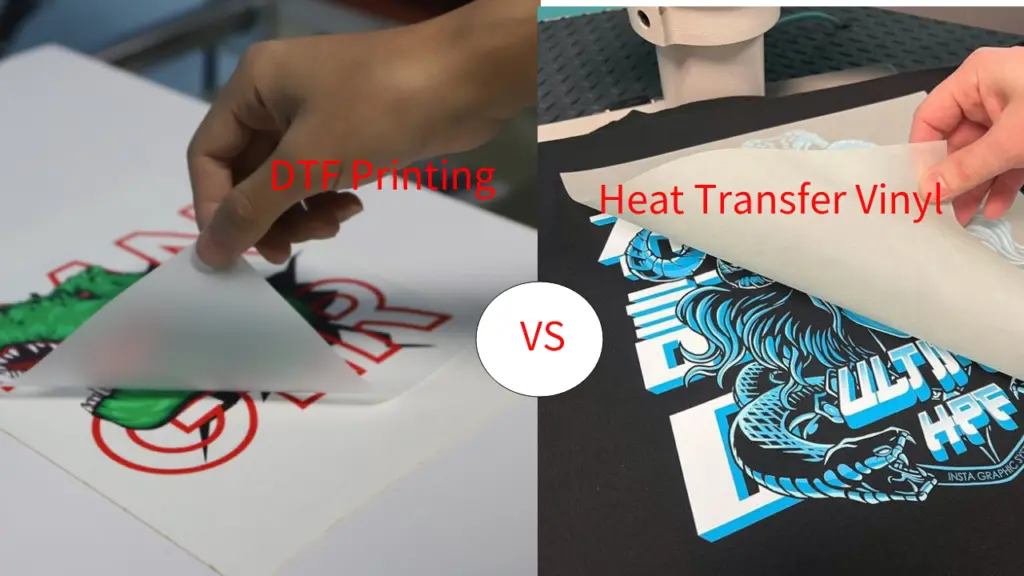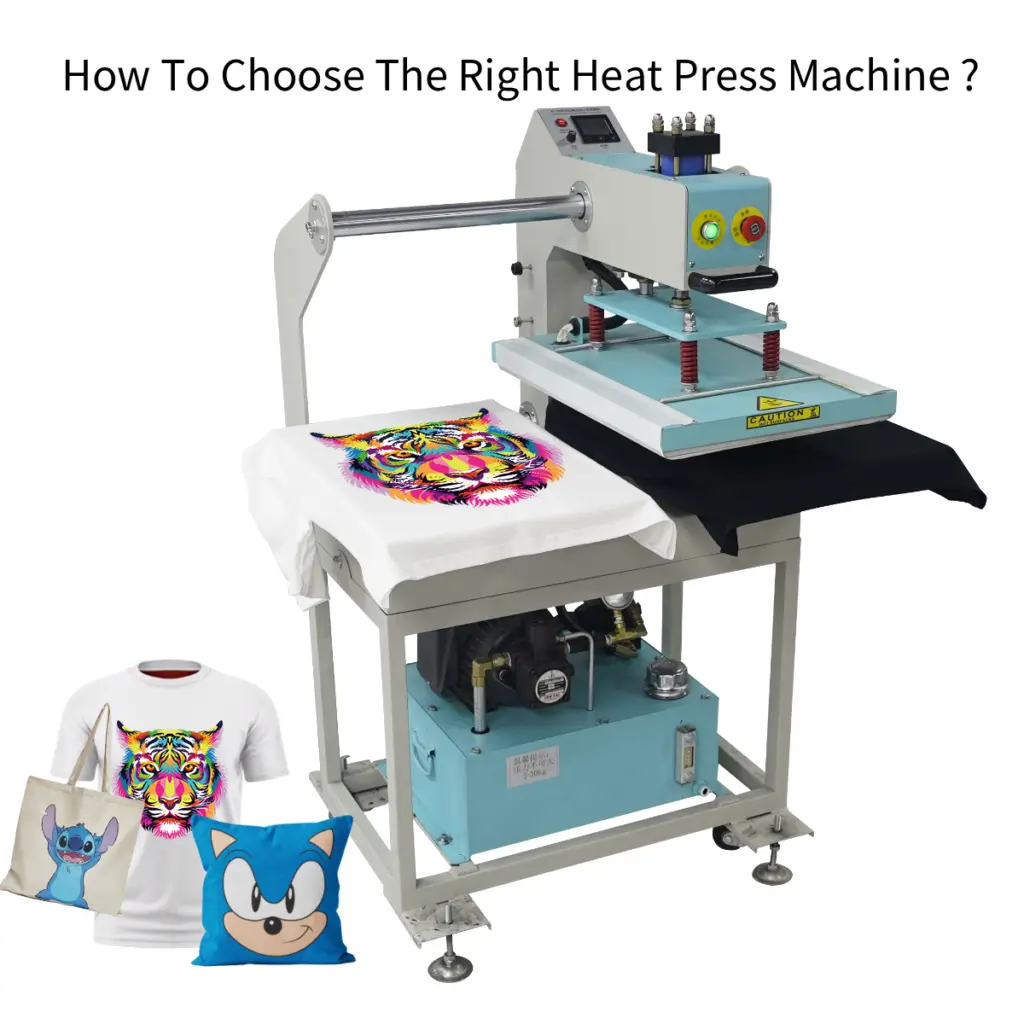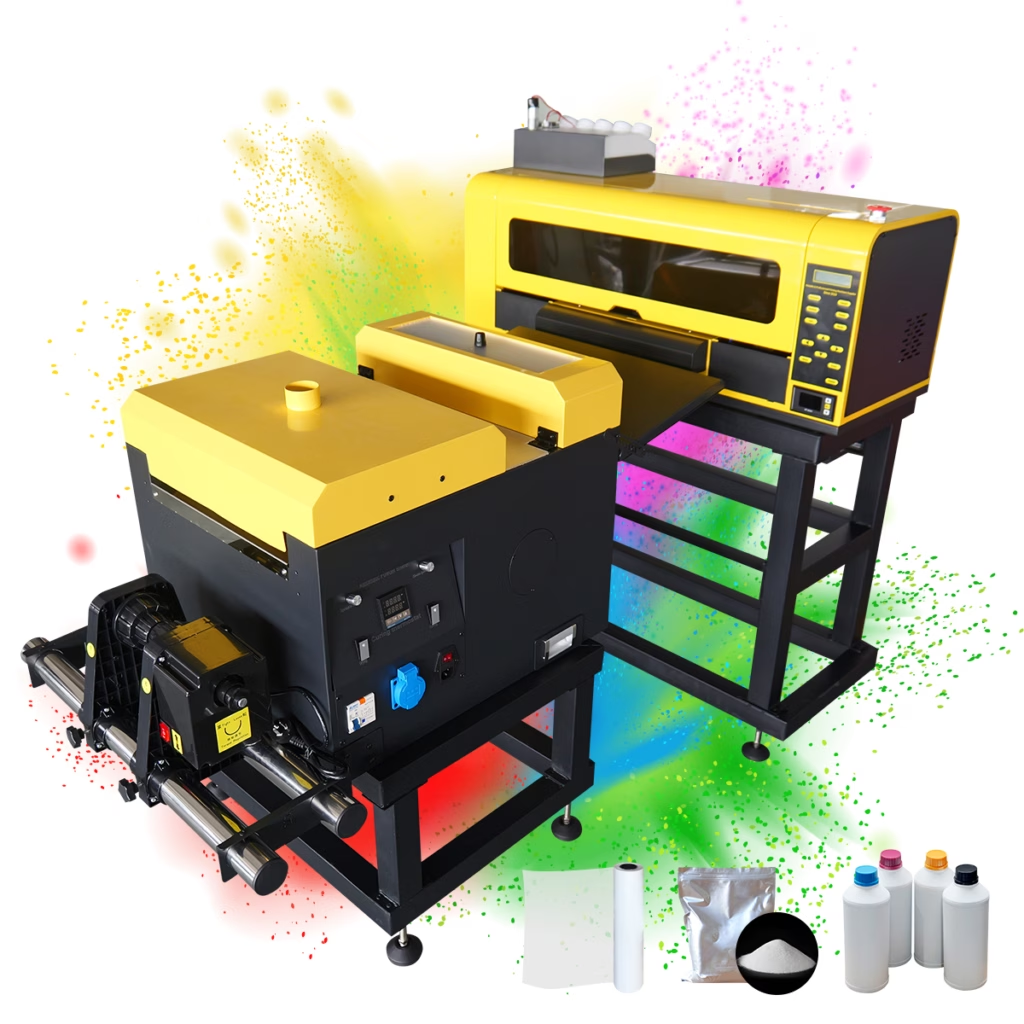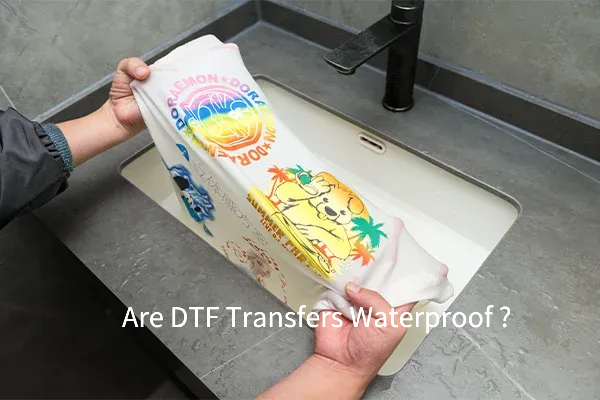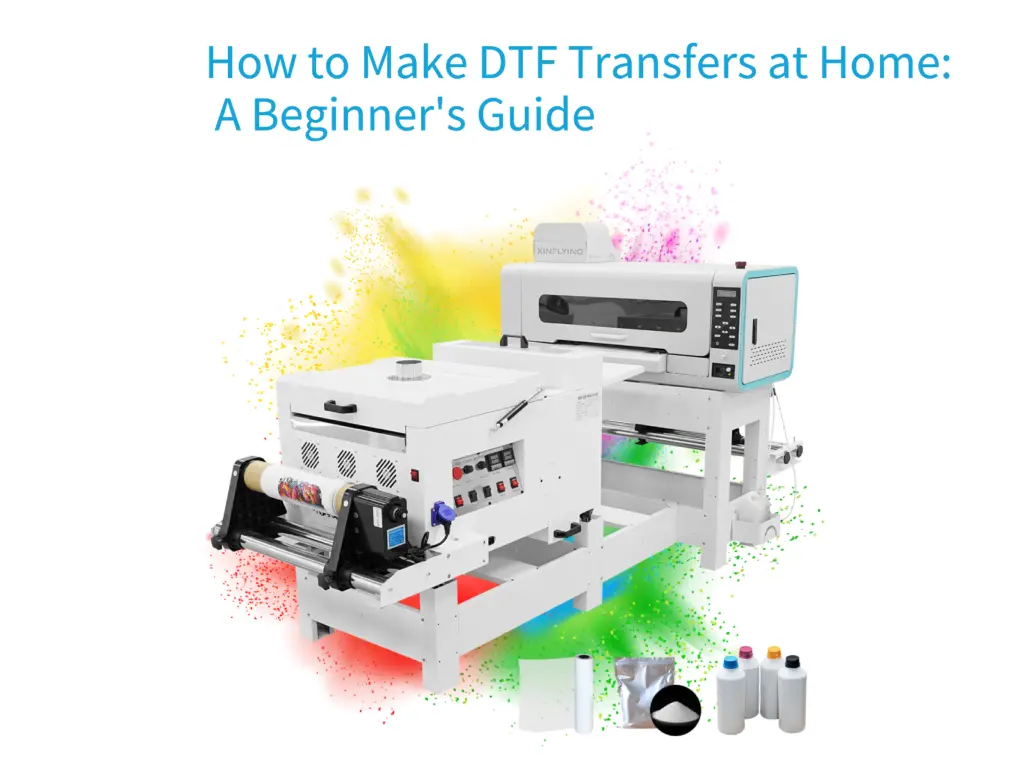Cyfrowy transfer białego atramentu (DTF) Drukowanie istnieje już od około dwóch dekad, czyniąc to stosunkowo nową technologią. Pomimo młodości, To znacząco wpłynęło na całą branżę. Powszechne przyjęcie i dostępność technologii DTF zwiększyły wzrost rynku w zapierającym dech w piersiach tempie. Już, Ten szybki wzrost zintensyfikował także konkurencję branżową.
Rozwój rynku DTF
Według Raport KeyPoint Intelligence, Wolumen drukowania DTF w 2022 oszacowano w okolicy 1.9 miliard metrów kwadratowych. Przez 2027, Oczekuje się, że liczba ta gwałtownie wzrośnie 10 miliard metrów kwadratowych.
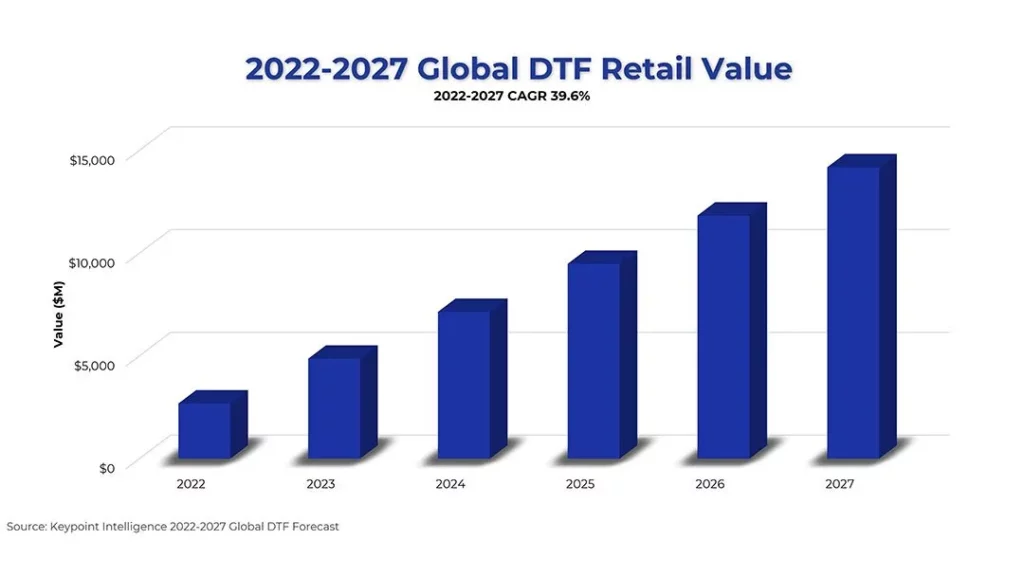
Pod względem wartości rynkowej, Raport sugeruje to Wartość detaliczna rynku DTF była $2.78 miliard w 2022. Przez 2027, Przewiduje się, że liczba ta dotrze do oszałamiającego $14 miliard. Raport podkreśla to “Wskaźniki adopcji DTF są bezprecedensowe w branży odzieży. W 2022, Urządzenia DTF uwzględniono o 44.5% wszystkich DTF, Bezpośrednie do garodu (DTG), i przesyłanie instalacji urządzeń. Przez 2027, Oczekuje się, że drukarki DTF będą się składać 64.4% takich instalacji.”
Raport Zauważa również to Było w przybliżeniu 9,082 Urządzenia DTF na całym świecie 2022. Oczekuje się, że liczba ta wzrośnie do prawie 15,000 przez 2027, z Maszyny do drukarki DTF z podwójną głową dominowanie na rynku, I Czterogniowe drukarki DTF obejmujący około jednej czwartej udziału w rynku.
Czy DTF może nadal być opłacalnym biznesem?
Biorąc pod uwagę te trendy, Można się zastanawiać: Czy DTF może nadal być opłacalnym biznesem? Krótka i ostateczna odpowiedź to: Tak. Jednakże, dla dostawców usług drukowanych (PSP) Aby osiągnąć długoterminową rentowność i wysokie marże, Muszą zupełnie wykorzystać technikę drukowania DTF w ofercie usług i produkcji.
W ostatnich latach, Dostępność maszyn DTF zwiększyła wzrost rynku. Rozwiązania w przystępnych cenach na sprzęt z Chin oznaczają, że prawie każdy może zaoferować klientom usługi DTF. Chociaż jest to świetne dla firm, które chcą dywersyfikować, Doprowadziło to również do nasycenia rynku.
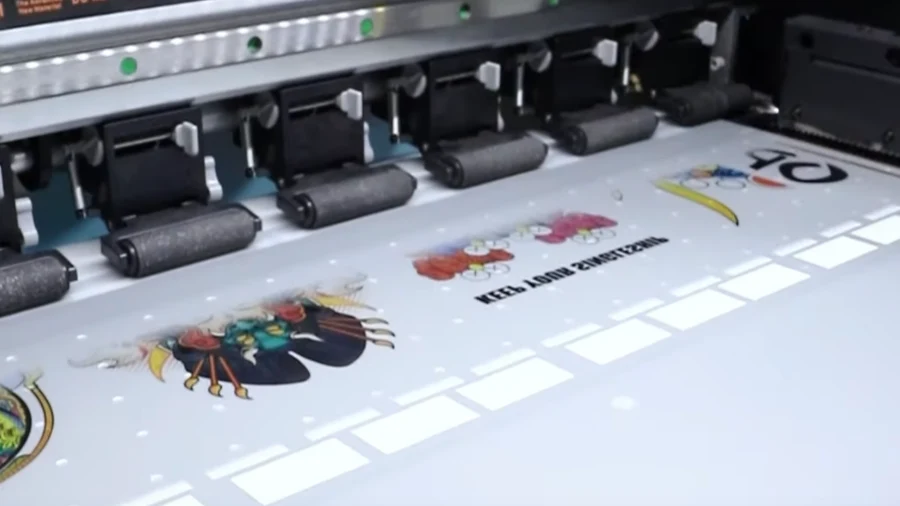
Raport Intelligence KeyPoint bezpośrednio rozwiązuje ten problem, zauważając to “Rynek DTF jest nadal na wczesnych etapach, ze znacznym zamieszaniem wśród dostawców sprzętu. Jego ścieżka rozwoju odzwierciedla wczesną ewolucję DTG.”
Więc, Jak można wyróżnić się na tle konkurencji i przyciągnąć cennych klientów? Odpowiedź jest prosta: Oferuj lepszą obsługę.
Dla klientów szukających szybkich i tanich rozwiązań bez wysokiej jakości wymagań, Istnieje wiele opcji. Jednakże, Klienci świadomi jakości wolą współpracować z doskonałym producentem drukarek DTF, co oznacza współpracę z najwyższym poziomem marki DTF Machine.
Dlaczego DTF jest tak popularny?
Przed zanurzeniem się w tym, co czyni wysokiej jakości maszynę DTF, Najpierw zrozummy DTF i dlaczego ta technologia jest tak popularna w Techniki drukowania tekstylnego.

Łatwe do nauczenia się i opanowania
Po pierwsze, Technologia DTF jest łatwa do nauczenia się i opanowania. Drukowanie z atramentami pigmentowymi na bazie wody na folii dla zwierząt jest dość podobne do drukowania papieru, Wyjaśniając to dla drukarni. Dodatkowo, Można to zrobić w stosunkowo niewielkiej przestrzeni, Udostępnianie go firmom każdej wielkości.
Szybka prędkość drukowania
Po drugie, Technologia drukowania DTF jest szybka, pozwalając PSP osiągnąć szybkie czasy zwrotu. Po zakończeniu drukowania filmu, Można go przechowywać, aż będzie potrzebne do przeniesienia, Umożliwianie PSP wcześniej przygotowywanie pracy i eliminowanie potrzeby drukowania podwójnego białego lub CMYK innymi metodami.
Najbardziej opłacalny proces
Ponadto, chwila Film DTF I gorący proszek klejowy ponieść dodatkowe koszty, DTF często okazuje się najbardziej opłacalnym procesem, zapewniając korzyści ekonomiczne PSP o różnych rozmiarach.
Szeroki zakres aplikacji
W końcu, szeroki zakres aplikacji otwiera różne rynki dla firm drukowanych. Technologia drukowania DTF może być używana do drukowania na wspólnej odzieży, takich jak koszulki, bluzy, i odzież sportowa, a także przedmioty promocyjne, a nawet dekoracje wnętrz.
DTF vs. Druk DTG
Omawiając DTF, Musimy również wspomnieć DTG. Mimo wszystko, Oba stosują metody drukowania bezpośredniego.
Drukowanie DTG nie wymaga transferów ani filmu i proszku, Ale nawet przy tych kosztach rozważanych, DTF nadal często oferuje przewagę kosztową. Dodatkowo, DTF nie wymaga wstępnego obróbki i jest odpowiedni dla różnych rodzajów światłowodów. Wreszcie, Pod względem zakresu kolorów, drobne szczegóły, i elastyczność odzieży, Metoda drukowania DTF ma unikalne zalety.
Przyszłość technologii drukowania DTF
Punkty omówione powyżej oparte są na bieżącej ofercie rynkowej, Ale co z przyszłością?
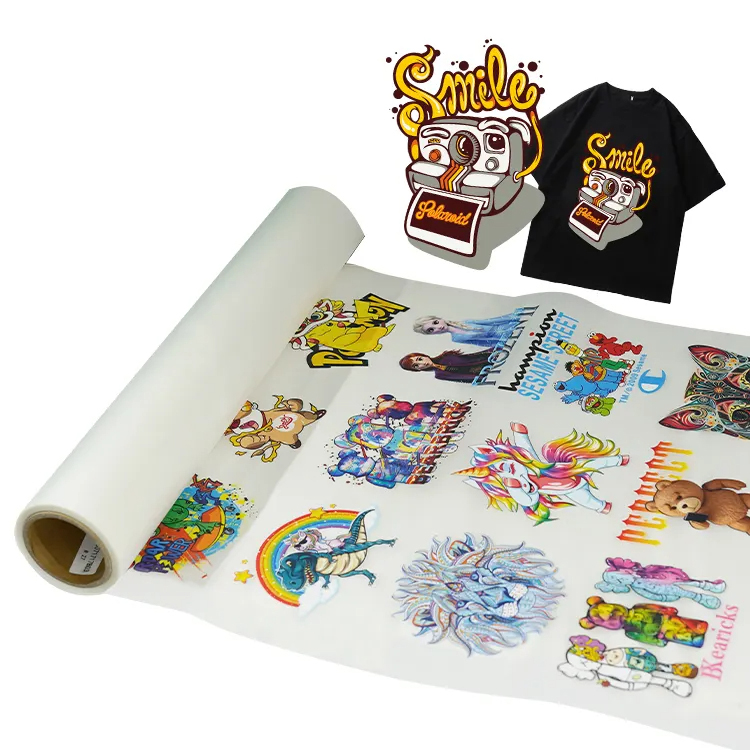
Innowacje w 2024 Fespa
Na 2024 Fespa, Widzieliśmy innowacje w polu DTF, z producentami i dostawcami obiecującymi wiele ekscytujących osiągnięć. Jednym z kluczowych czynników wpływających na rynek DTF i wszystkie sektory drukarskie jest zrównoważony rozwój. Wraz ze wzrostem zapotrzebowania klientów na ekologiczne drukowanie, Producenci muszą odpowiedzieć, co jest widoczne w domenie DTF.
Najnowsze oferty Mimaki
Weź Mimaki, Na przykład. Producent ogłosił niedawno nowy Mimaki TXF300-75, zdolny do drukowania na bawełnie, poliester, i mieszanki poliestru, a także lekkie i ciemne tkaniny, Oferując najlepsze zarówno w świecie drukowania DTF, jak i DTG.
Nowa maszyna jest wyposażona w standardową dwuletnią gwarancję i wykorzystuje atramenty Mimaki certyfikowane przez paszport eko-tex eeko-tex, spełnianie rosnącego popytu klientów na produkcję przyjazną dla skóry i przyjazny dla środowiska.
Ten nowy model ma na celu wykorzystanie wczesnego sukcesu serii DTF Mimaki uruchomionej w zeszłym roku. TXF150-75 sprzedał się 300 Jednostki w Europie, Bliski Wschód, i Afryka. Mimaki twierdzi, że najnowszy model jest trzy razy szybszy niż poprzednie modele, Zaprojektowany dla profesjonalnego rynku dekoracji odzieży masowej.
“Hybrydowy dyrektor sprzedaży mówi, „TXF300-75 pokazuje szybki wzrost popularności procesów bezpośrednich do filmu. Teraz, Uruchamianie się wraz z udanym TXF150-75, Oferuje więcej wyborów dla firm wchodzących lub rozwijających się na rynku dekoracji odzieży.”
RA Smart obsługuje również DTF, Posiadanie rozproszonych roztworów DTF z Polytech, Jeden z pionierów technologii DTF, od 2021.
Wkład RA Smart
Alex Mighall, menedżer ds. Marketingu produktów RA Smart, był świadkiem tej ekspansji rynkowej z pierwszej ręki. Przypisuje niezwykły rozwój DTF jego unikalnymi zaletami technologicznymi i podkreśla pojawienie się wielu różnych platform DTF w ostatnich latach. Dodaje, że napływ głównych marek będzie tylko zwiększyć wzrost.
“Niewątpliwie, Technologia DTF oferuje doskonałe rozwiązanie, Ale praca z renomowanymi dystrybutorami ma kluczowe znaczenie dla jak najwięcej zminimalizowania krzywej uczenia się nowej technologii.”
Trendy rynkowe i przyszłe perspektywy
Dotyczące trendów rynkowych, RA Smart zidentyfikował ogólny trend w maszynach DTF: Zapewnienie szybszych czasów zwrotów dla klientów i zwiększenie różnorodności produktów, które może wyprodukować pojedyncza maszyna.
Zauważa, że duży dostawcy drukowania inwestują teraz w wiele maszyn i bardziej wydajnych systemach, Tak więc popyt na systemy wyższej wydajności będzie nadal rosły.
Jeśli zainwestujesz w drukarkę DTF?
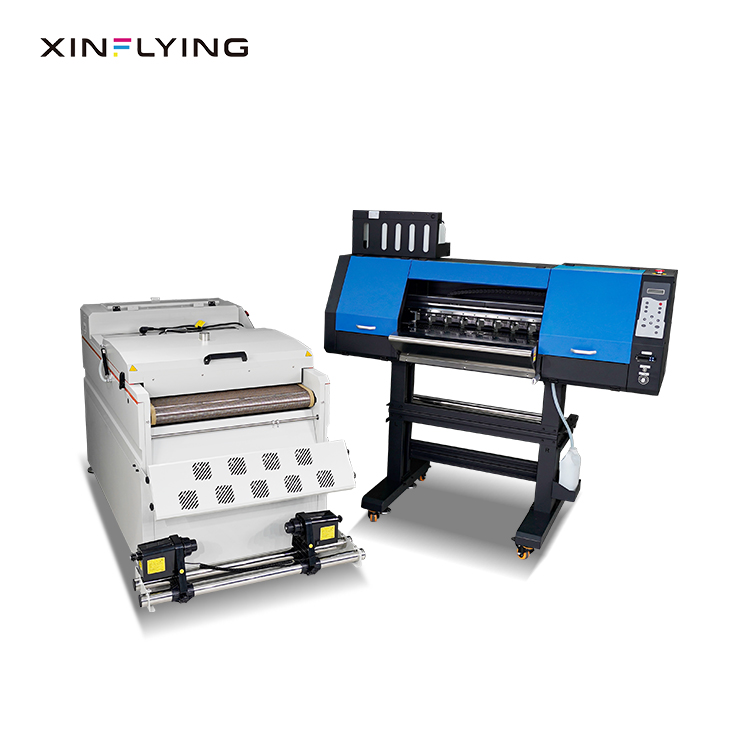
Jest niewątpliwie wiele opcji Drukarka DTF, Ale opinie na temat inwestowania będą się różnić. Dla tych, którzy chcą wejść na rynek DTF, Jedną z opcji jest współpraca z Profesjonalny producent drukarki tekstylnej. Oczywiście, Oznacza to rezygnację z zysku, ale także unikanie problemów inwestowania w szkolenie i możliwość natychmiastowego przyjmowania zamówień.
Więc, Czy to warto? To zależy od tego, ile DTF planujesz. Jeśli masz już umowy z istniejącymi klientami, są pewni swoich zamówień, i są biegli w tej technologii, Warto go nurkować. Z drugiej strony, Jeśli chcesz przetestować wody przed pełnym popełnieniem, Dobrym opcją jest również współpraca z partnerem handlowym.
Wniosek
Podsumowując, Jest wiele do podekscytowania, jeśli chodzi o technologię drukowania DTF. Ta technologia nie tylko pozwala na produkcję różnych drukowanych produktów, ale także wykazuje szybki rozwój, z wieloma dużymi firmami wchodzi na rynek z własnymi maszynami DTF. Sugeruje to, że możemy oczekiwać jeszcze większego wzrostu i ekspansji na tym już bardzo aktywnym rynku.



